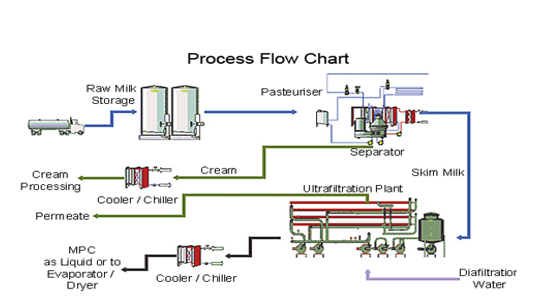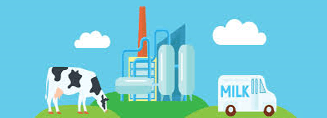4 Checklist To Evaluate Food Copacker For Dairy
Right Co-packers should have the basic samples ready to work on product deals .
The global dairy industry is composed of a multitude of countries with unique production practices and consumer markets. The global average number of cows per farm is about 1-2 cows; however, as a farm business model transitions from sustenance to market production, the average herd size, and subsequent labor force increases. Dairy production is unique as an agricultural commodity because milk is produced daily, for 365 days per year. With the introduction of new technology such as the milking parlor, the global industry trend is one of increasing farm sizes.
Checklists to select right co packers?
- Quality Assurance
- R&D
- Provider of brand worthy solutions:
- Flexibility is priority
1. Quality Assurance
Milk has a short shelf life; however, products such as milk powders have allowed a global industry to be developed. Quality control tests are vital to support activities for hygiene and food standards to meet regulatory and customer demands. The dairy industry is a traditional industry with a low margin commodity
- GMP and GHP are the needs to look into which assures the quality of work and finished goods from a co packer in dairy industry.
- The implementation of strategies to improve & strengthen milk process optimization is of vital importance within the dairy industry. The rapid deterioration of milk products forces dairy processors to critically optimize and plan their production schedules. The business model is to look at the work force, to reduce or eliminate any time or/and resource wastage, unnecessary costs ,bottlenecks, and mistakes while attaining the process objective of creating a quality product
- In addition ,changing consumer demand patterns are effective food production. The”traditional”value drivers of price, taste ,and convenience have been complemented by newer and ‘evolving’ drivers such as health and wellness, safety ,social impact, and experience. Central to all of these drivers is a need for transparency from food companies. Given the ever changing nature of the consumer food value drivers, dairy producers must look to their production processes to innovate with new products and to optimize output without compromising on quality and safety
2. R&D
It is critically important that the co-packer and brand owner totally understand each other regarding expectations in product development, ingredients to be used, quality systems that will be required and all limitations or restrictions in each of these areas,” says John Thaller, president. “Traditional food processors may likely be locked into standardized equipment and processes, requiring huge volume of efficiency, and therefore, do not lend themselves to the production of small private label runs or products unique to their standardized process.”R&D team needs to point out, as early as possible, any limitations within the facility that may result in deviations in the target product.”Diary industries on part of the sector needed to follow up with techniques & knowledge.

3. Provider of brand worthy solutions:
Dairy industries on go with variety of formulations and the variety of products range are high.Hence manufacturers expect to work with trustworthiness so that their company policies are no mishandled. Trust effectiveness on part of quality and terms and conditions proven to be an important factor to idealize for a dairy co packer.

4. Flexibility is priority
Flexibility in the work end of the dairy industry is important factor. On part of the varied range ,if machineries need to be procured on as such to produce new or varied products, manufacturers try out easy and handy way to deal with co packers. Different areas in dairy industries have their own performance sector, hence it is advisable for co packers to be enough flexible and competent to fulfill the needs of the manufacturers with varied ares of customization

